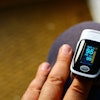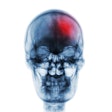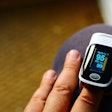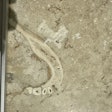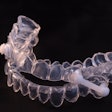Heart attacks could soon be added to the ever increasing list of systemic diseases that dentists can detect.
Researchers reported at the recent American Association for Dental Research (AADR) meeting in Dallas that it may be possible to diagnose a heart attack by doing a saliva test with a new nano-bio-chip device.
A team led by John T. McDevitt, Ph.D., of the University of Texas at Austin developed a set of nano-bio-chip sensors. The devices are programmed to detect sets of blood serum proteins in saliva that indicate cardiac disease.
Researchers from the University of Kentucky College of Dentistry used the sensors to test the saliva of 56 subjects who had suffered a heart attack and 59 healthy subjects.
They tested for 32 proteins associated with atherosclerosis, thrombosis and acute coronary syndrome. Heart attack subjects' saliva contained these proteins in a higher concentration, they found. In some cases the salivary proteins were as accurate as those found in blood serum.
"These are truly exciting findings, since use of these tests could lead to more rapid diagnosis and faster entry of patients into treatment scenarios that can save lives," said Craig S. Miller, Ph.D., of the Kentucky team, in a press release.
The testing process is simple. The patient spits into a tube and the saliva is transferred to the sensor, a credit card-sized lab card. The card is inserted into an analyzer which can give results in as little as 15 minutes. The device can diagnose if the patient is having an attack or is as risk for one.
"What’s novel here is our ability to measure all such proteins in one setting and to use a noninvasive saliva sample, where low protein levels make such tests difficult even with large and expensive lab instruments," said Dr. McDevitt in the release.
Researchers say the devise could one day be used in an ambulance, at a dentist's officer, or even a neighborhood drug store.
"Many heart attack victims, especially women, experience nonspecific symptoms and secure medical help too late after permanent damage to the cardiac tissue has occurred," said Dr. McDevitt. "Our tests promise to dramatically improve the accuracy and speed of cardiac diagnosis."
Although still in the testing stage the device is a candidate for commercial development through the Texas company LabNow, Inc.



